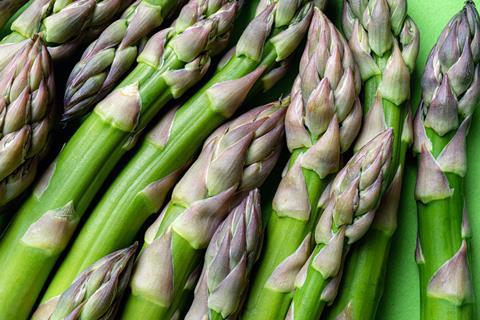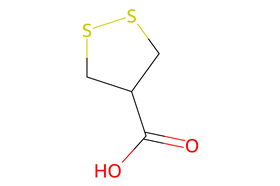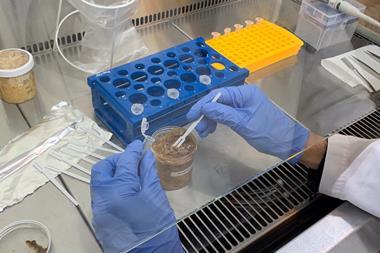
It’s officially asparagus season. For those of us who love these vibrant green shoots this will be welcome news, but it may also serve as a significantly less welcome reminder of the rather pungent side effect of eating it – smelly wee.
But what exactly causes this seasonal sulfurous aroma and do we all produce it or are some of us lucky enough to leave the toilet bowl stink-free?
What exactly does asparagus wee smell like?
Post-asparagus urine generally has a sulfurous odour, not unlike the smell of cooked, or even rotten, cabbage (we’ll go into why a bit later).
This phenomenon was observed a long time ago, in the early 1700s. It is on record that Benjamin Franklin noted that ‘a few stems of asparagus eaten shall give our urine a disagreeable odour’ and Marcel Proust wrote more favourably that asparagus ‘as in a Shakespeare fairy-story transforms my chamber-pot into a flask of perfume’.
But, while many people will know exactly what we’re talking about here, some will not have had any experience of this smell – even if they eat asparagus regularly – and there are a couple of hypotheses about why this might be. It could be the case that everyone has smelly urine after eating asparagus and some people simply cannot smell it, or some people simply do not produce malodorous urine (or only produce a small amount of it).
Is it something in the asparagus itself that smells?

There’s nothing in fresh asparagus itself that has this smell and cooking the asparagus would likely lead to the loss of any odorous compounds anyway, due to their highly volatile nature. This suggests that the cause of the smell arises when we eat, and consequently digest, the vegetable.
The probable culprit is asparagusic acid which, as the name suggests, is unique to asparagus. Asparagusic acid is an organosulfur compound which also contains a carboxylic acid group.
When asparagusic acid is broken down in our digestive system it produces a variety of sulfur-containing volatile organic compounds (VOCs) including dimethyl sulfide (cabbage-like scent), methanethiol (one of the compounds responsible for the smell of farts and halitosis), dimethyl sulfoxide (garlic-like or oyster-like smell) and dimethyl sulfone (earthy or garlic-like scent).
It has been suggested that dimethyl sulfide and methanethiol are the main odour-causing compounds, while dimethyl sulfoxide and dimethyl sulfone add sweet notes to the aroma. This cocktail of VOCs are excreted in our urine and evaporate from the warm liquid as it exits the body. Delightful!
Has any research been conducted on the source of the smell?
Dating all the way back to 1956, several studies have been carried out to investigate the source of the smell and a number of odorants, including those mentioned above, have been put forward as the potential culprit.
Gas chromatography-mass spectrometry has been used to analyse the gas that forms immediately above the surface of the urine (referred to as the ‘headspace’), in order to identify the odour-causing compounds. This analysis shows that the primary compounds present, in quantities a thousand times greater than in normal urine, were methanethiol and dimethyl sulfide.
Does everyone’s urine smell after eating asparagus?
Studies on this generally estimate that between 20–50% of people experience a distinct change in the scent of their urine after eating asparagus. However, because there is no known clinical problem associated with the inability to either excrete or detect the asparagus odour, the trait has received limited attention from researchers and the major determinant of individual differences in asparagus odour production in urine remains largely unknown.
In a 2011 study, around 8% of the subjects they included did not produce the characteristic asparagus odour in sufficient concentrations to be detected. But the researchers recognised that asparagus odour in urine is not an ‘all-or-nothing’ phenomenon – some people produce an odour that is easy to detect and it was reasonable to assume that odorant production varies from individual to individual.
For those who don’t get to encounter the joy of asparagus wee, researchers suggest it could be because of two reasons. First, everyone digests their food differently and some people break down the sulfurous byproducts more easily, and second, it is likely that there is some genetic component that influences the combinations of the many metabolic enzymes that break down our food.
Can everyone detect the smell?
Research indicates that most people produce asparagus wee but only some of us can smell it.
In a 2016 study in which the genetic data of almost 7000 participants were recorded along with their ability to smell asparagus metabolites, researchers found that 58% of men and 61.5% of women had asparagus anosmia or smell blindness to this scent. And they didn’t find just one gene variant responsible, over 870 single nucleotide polymorphisms reached genome-wide significance for asparagus anosmia, all located on chromosome 1, specifically at the 1q44 locus.
Another study, published in 2011, found that the reduced ability to smell the asparagus metabolites in urine appeared to be related to a single nucleotide polymorphism near the olfactory receptor gene OR2M7, which is located at 1q44 on chromosome 1.
It has also been suggested that odour sensitivity may change with repeated exposure, so someone who cannot produce the asparagus odour might be less able to smell it because they have less experience with the odour from their own urine.
Overall, the ability to generate and/or detect the smell varies across the world, suggesting a genetically determined specific hypersensitivity.
Should I stop eating asparagus if it gives me smelly wee?
No, not at all, the smell is completely normal. Asparagus is a nutritious vegetable packed with vitamins, fibre and antioxidants, so if you enjoy eating it then bon appétit! If you want to tone down the potency of the smell you could try drinking more water, experimenting with different asparagus varieties and cooking methods, and maybe even trying to eat it alongside other foods to lessen asparagusic acid levels in your body.


















No comments yet